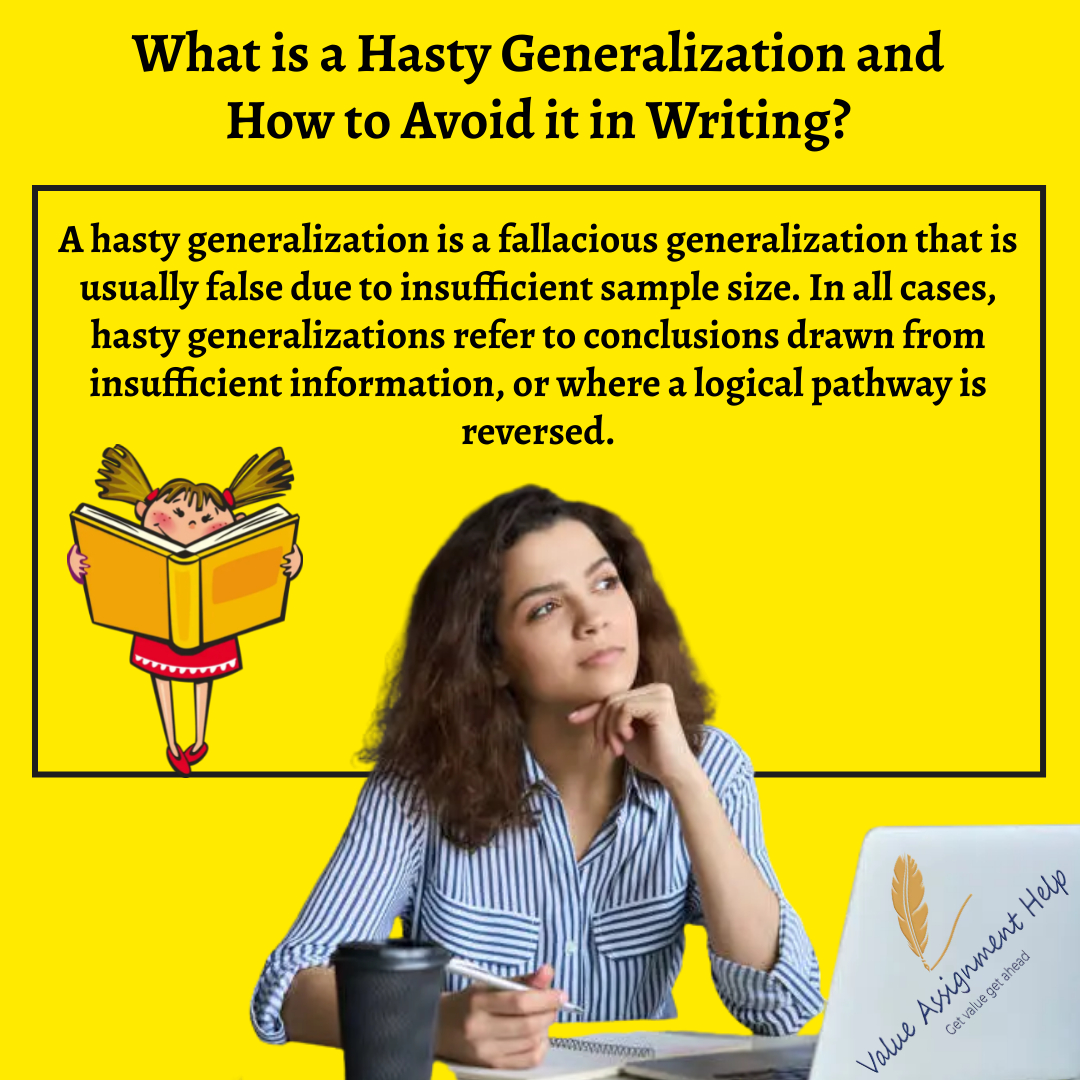
Search Assignments
Table of Contents
Our Experts

Search Assignments

Customers Reviews
If you don't like a song by an artist, does that mean all their songs stink? To think so is to make hasty generalisations. Experience is a way of motivating people to conclude. This is reasonable, but only if the number of experiences matches the breadth of the conclusion. Hasty generalisations lead to misunderstandings and unsuccessful arguments.

Hasty generalisation is a misleading generalisation usually wrong due to an inadequate sample size. In all cases, hasty generalisations refer to conclusions drawn from insufficient information or where a logical path is reversed. This error is known by other names, including haste, the fallacy of single fact, the fallacy of insufficient data, insufficient sampling, contrast accident, or simply jumping to conclusions.
Within the scientific community, researchers are cautioned to approach the act of generalisation as judiciously as possible. By its very nature, inductive reasoning requires observers to make generalisations. But before such generalisations can be made, it is essential to apply critical thinking and confirm that you are not subscribing to any logical fallacy. Any confusion will undermine your reasoning and the overall power of your writing.
Hasty generalisations can happen in any situation, and you must keep that in mind while writing the paper. So, in this blog below, some examples of hasty generalisations are presented. Let's take a look at them.
For example, your younger sister is doing makeup. You can generalise this by saying that every girl wears makeup. This is an example of a hasty generalisation. You are concluding your sister's makeup.
Another example is where the logical progression is reversed to reach a particular result. For example, if your sister loves to do makeup, she also likes to go to parties. However, it's wrong to say that people who love to put on makeup like to hang out.
Suppose when you come home and see Scrabble on the wall. Of course, you would immediately blame him for doing this without any supporting evidence. So, this may be a form of hasty generalisation. But, this is an example of the fallacy of hasty generalisations that will give you a better understanding.
Opting for hasty generalisations in our writing can make the conclusion vogue. This can make your entire answer wrong. Apart from these, making hasty generalisations can lead to many problems.
As you can see, making hasty generalisations can lead to incorrect results, which can seriously impact your academic proficiency and score.
When students make hasty generalisations in their writing, it is usually due to insufficient research or analysis. Thus, below are some pointers to detect hasty generalisations in the material.
Look for words like always, never etc., in your writing.
Although you can edit your content to stop hasty generalisations in your writing, you should try to address this from the beginning when you begin writing your content. This way, you can write your academic paper better without worrying about faulty generalisations.
Writing a document without hasty generalisations is essential when writing any paper in your academic year. But many students do not know how to avoid such sentences. So, here are the ways they should follow to avoid writing generalised sentences in a hurry.




No Comments